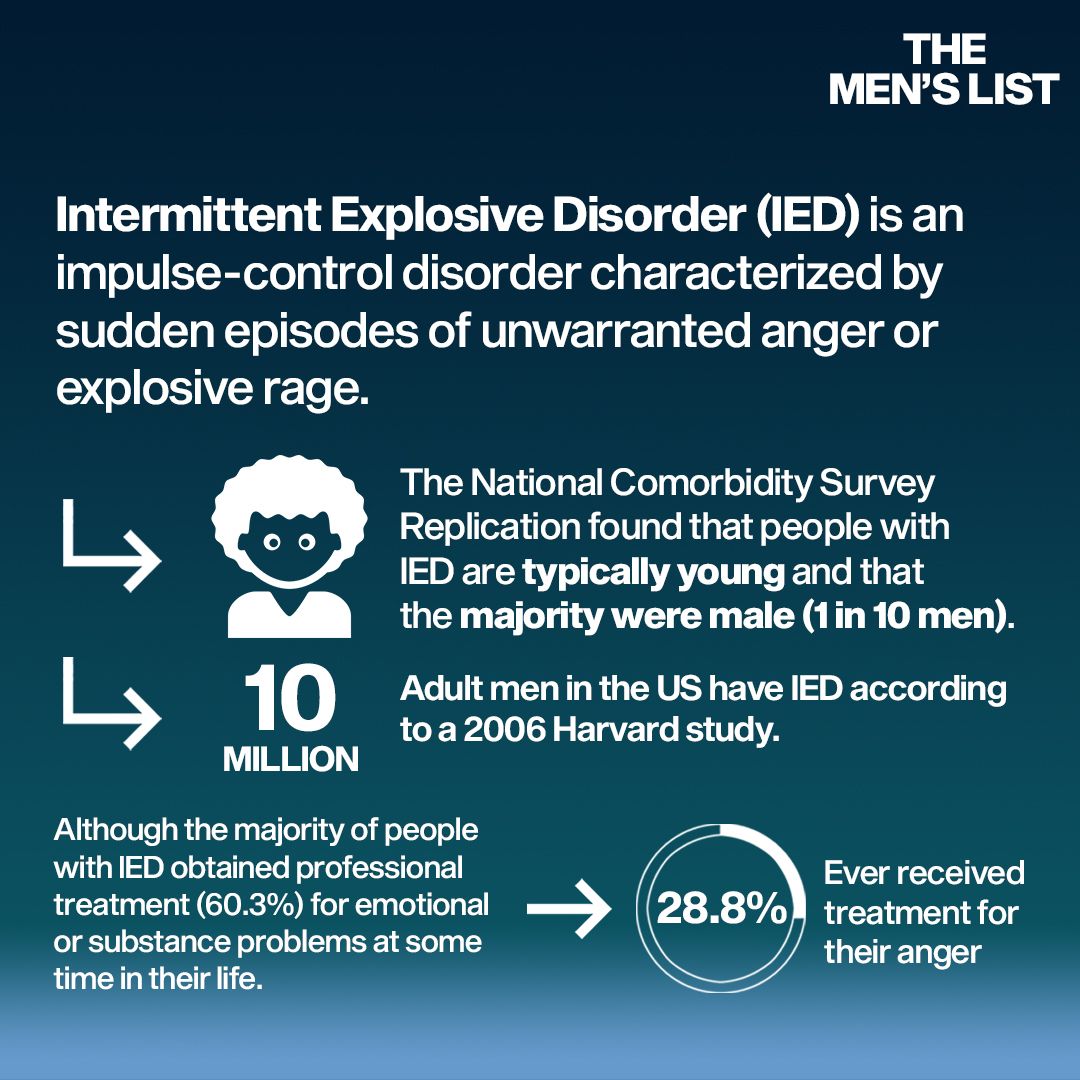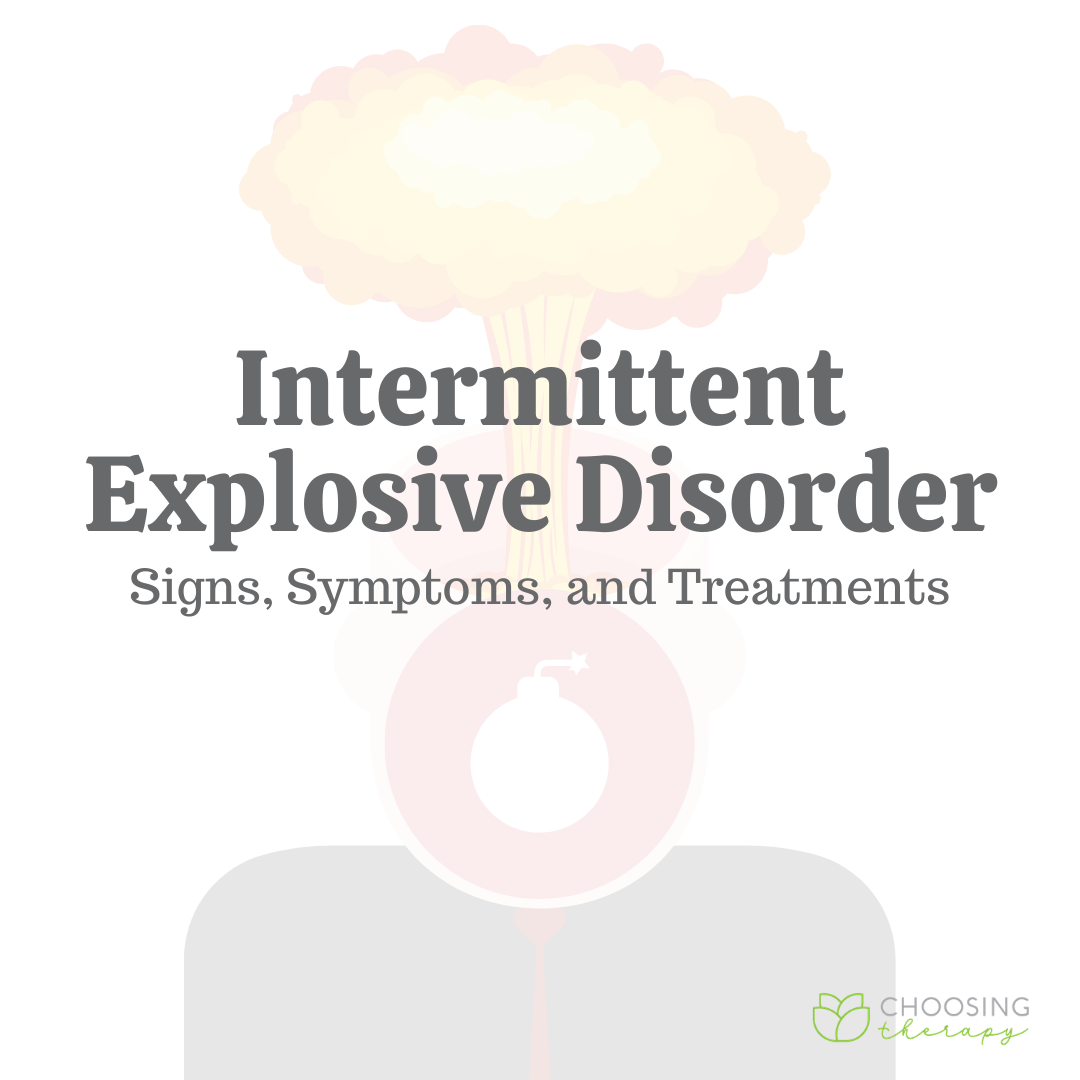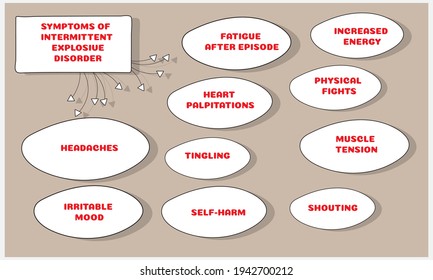Intermittent Outburst Disorder
Intermittent explosive disorder IED is a condition that involves sudden outbursts of rage aggression or violence. IED is a mental health disorder that first appears in childhood or adolescence and is made up of the following symptoms.

Intermittent Explosive Disorder By
Tony Kassa a veteran of the Armed Services has been treated for a variety of psychiatric disorders including Intermittent Explosive Disorder Paranoid Personality Disorder and Alcohol Abuse.

Intermittent outburst disorder. Intermittent Explosive Disorder Treatment. To be considered intermittent explosive disorder the explosive outbursts of anger must be triggered in situations andor. According to The Mayo Clinic intermittent explosive disorder is characterized by repeated sudden episodes of impulsive aggressive violent behavior or angry verbal outbursts in which a.
Several episodes of being unable to resist aggressive impulses that bring about major aggressive acts such as assault or destroying property. The most popular form of treatment is medication. If the above statements ring true for your child it could be a sign of Intermittent Explosive Disorder IED a lesser-known mental disorder marked by episodes of unwarranted anger.
Having three or more outbursts within a one-year period resulting. Outbursts include temper tantrums verbal or physical fights the harming of an animal or the damaging of property. These outbursts are impulsive not premeditated and extremely difficult to predict.
Recurrent behavioral outburst representing a failure to control aggressive impulses as manifested by either of the following. According to the DSM_5 intermittent explosive disorder is characterized by impulsive and aggressive outbursts. The condition listed in DSM-5 as Intermittent Explosive Disorder usually consists of violently aggressive primitive outbursts including screaming punching wrestling and throwing objects that injure people or destroy property.
Intermittent explosive disorder is a diagnosis that characterizes individuals who have episodes of dyscontrol assaultive acts and extreme aggression that is out of proportion to the precipitating event and is not explained by another Axis I or an Axis II disorder. IED is an impulse-control disorder characterised by a pattern of sudden impulsive aggressive and violent behaviour or explosive outbursts of anger andor violence that are disproportionate to the situation at hand. What is intermittent explosive disorder.
Verbal aggression eg temper tantrums tirades verbal arguments or fights or physical aggression toward property animals or other individuals occurring twice weekly on average for a period of 3 months. What is Intermittent Explosive Disorder. Do you feel like you are walking on eggshells to avoid triggering an over-the-top impulsive violent outburst in your teenager.
These reactions tend to. Intermittent Explosive Disorder. Intermittent explosive disorder sometimes abbreviated as IED is a behavioral disorder characterized by explosive outbursts of anger andor violence often to the point of rage that are disproportionate to the situation at hand eg impulsive shouting screaming or excessive reprimanding triggered by relatively inconsequential events.
Following such an outburst the individual. Therefore the chances of someone getting hurt as a result of an outburst are higher. These outbursts can be in the form of verbal tirades or physical aggression.
There are several ways to treat intermittent explosive disorder. Intermittent explosive disorder IED is an impulse-control disorder characterized by sudden episodes of unwarranted anger. ADA Does Not Protect Disability Related Outburst.
The disorder is typified by hostility impulsivity and recurrent aggressive outbursts. People with IED essentially explode into a rage despite a lack of apparent provocation or reason. Intermittent explosive disorder IED A child with IED may have impulsive behavior outbursts very frequently or two or more outbursts per week for three months.
Intermittent explosive disorder is marked by several discrete episodes of failure to resist aggressive impulses. It is important to receive a proper diagnosis and begin treatment as soon as possible. The disorder is typified by hostility impulsivity and recurrent aggressive outbursts.
People with IED essentially explode into a rage despite a lack of apparent provocation or reason. It is commonly described as flying into a rage for no reason In an individual with intermittent explosive disorder the behavioral outbursts are out of proportion to the situation. Intermittent explosive disorder IED is an impulse-control disorder characterized by sudden episodes of unwarranted anger.
Minor stimuli such as verbal threats anger or frustration especially after consuming even small amounts of alcohol. Individuals suffering from. Intermittent explosive disorder IED is regarded as a subtype of impulse control disorder characterized by impulsive uncontrollable explosive outbursts of anger aggression andor rage sometimes accompanied by violence.
Intermittent explosive disorder is a lesser-known mental disorder marked by episodes of unwarranted anger. Intermittent explosive disorder IED is an impulse control disorder characterized by recurrent episodes of violent aggressive outbursts either verbal or physical out of proportion to the provoking events and immediately followed by a sense of regret. Synovus hired him to work as a Network Support Analyst during the night shift.
Common behavioural manifestations of IED are road rage property damage and domestic abuse. This can include verbally aggressive episodes that dont injure anyone or anything.

Intermittent Explosive Disorder Signs Symptoms Treatments

Intermittent Explosive Disorder Images Stock Photos Vectors Shutterstock

Wolverine With Intermittent Explosive Disorder Disorder En Explosive Film Intermittent Movie Psychology Social Studies Wolverine Glogster Edu Interactive Multimedia Posters